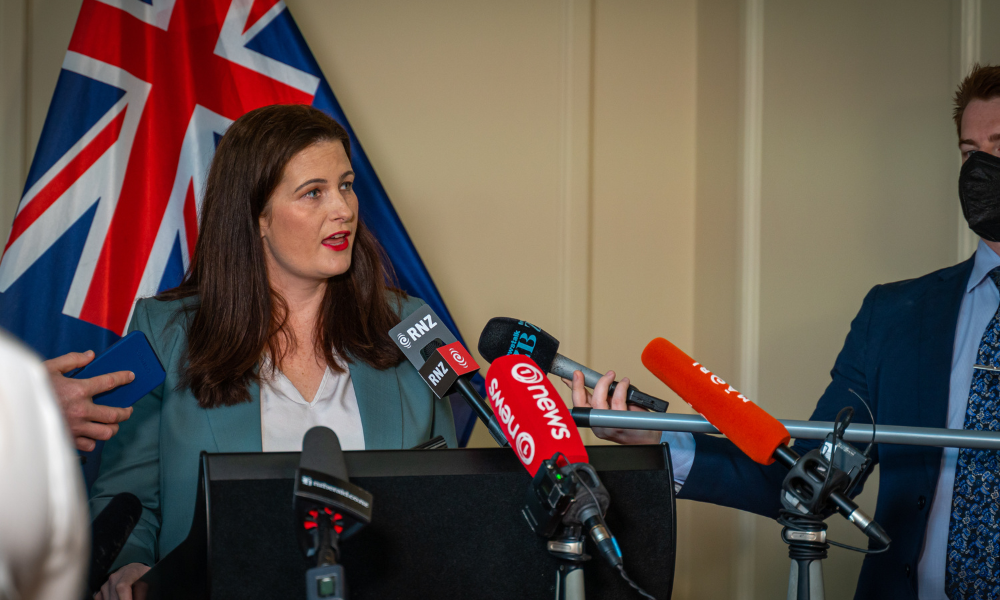Another 'punch in the guts' for mortgage holders, says National

April’s official cash rate rise will result in yet more financial pain for everyday mortgage holders, the deputy leader of the Opposition warns.
National’s finance spokesperson and deputy leader Nicola Willis (pictured above), who is also the party’s deputy leader, described the larger-than-expected 0.50% increase on April 5 as another “punch in the guts” for mortgage holders.
“This is the eleventh consecutive hike in the official cash rate,” Willis said. “Around half of New Zealand mortgage holders will be refixing their mortgages in the next six months, meaning many will see their interest rates double from 3% or less to more than 6%.”.
The speed of the April hike, which brings the official cash rate to 5.25% – the highest level since 2008 – would leave many Kiwis scrambling trying to find “hundreds of dollars more” each fortnight just to stand still, she said.
“Sadly, for too many Kiwis this will be the punch that sends them off the edge, into mortgage arrears, unwanted house sales and financial distress,” Willis said.
Annual inflation remains above 7% - is the government responsible?
According to StatsNZ figures for the December 2022 quarter, annual inflation remains at 7.2% - slightly higher than Australia - where inflation retracted slightly to 6.8% in the 12 months to February.
Willis described the Labour government’s immigration settings as “restrictive” and said that the degree of money printing and borrowing it oversaw during COVID-19 lockdowns worsened the cost of living in New Zealand.
“A stronger, more careful economic management approach would have put less pressure on New Zealand’s level of inflation and interest rates,” she said.
National would reintroduce single inflation mandate for RBNZ
The Reserve Bank of New Zealand has a dual mandate to keep inflation between 1% and 3% over the medium term and to support maximum sustainable employment.
Labour has overseen “significant changes” to institutional arrangements for monetary policy, Willis said. She noted that the Reserve Bank’s single mandate focus had changed, requiring it to focus on keeping inflation low while considering how its policies would affect employment.
“Since these changes were made, New Zealand has experienced higher inflation than at any other time in recent decades,” Willis said.
A National government would “end Labour’s failed experiment” and go back to the approach of requiring the Reserve Bank to focus on one key goal of keeping inflation low, whilst leaving employment-related considerations to government, she said.
Explaining the likely rationale for a 0.50% hike, Kiwibank chief economist Jarrod Kerr (pictured below) told NZ Adviser that the RBNZ wanted to ensure long-term fixed interest rates would remain at current levels.

In its April statement, the RBNZ monetary policy committee made reference to a “significant fall” in wholesale interest rates since its February review, which Kerr said made sense in terms of its mandate and ongoing effort to rein in spending and bring inflation down.
“Had they delivered 0.25%, we may have seen mortgage rates actually come off in those two to three-year and five-year rates, and obviously they want to try to keep rates at least at this level (and variable rates higher),” Kerr said.
The RBNZ is assumed to have weighed up the likely reactions within financial markets and banks of a 0.25% and 0.50% increase, before making a decision to “front load”.
The RBNZ delivered the 0.50% increase in the aim to keep interest rates where they are, while keeping its foot “firmly on the throat” of the economy, Kerr said.



